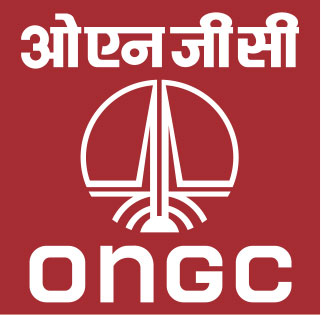With a modest Rs. 262 crores worth of procurement from Micro and Small Enterprises(MSEs) , starting in the year 2013-14, the last fiscal year had ONGC doing business worth Rs. 1,378 crores with them. When looked at as a percentage of total eligible procurement, this translates into a figure of 29.35%. This exceeds the 25% target set by the Govt. of India for procurement from MSEs, which incidentally was revised during the latter part of last year from the earlier 20%. These statistics draw relevance from the attention being given by the Hon. Prime Minister to strengthen the ecosystem for the development of MSEs.

Increasing trend of procurement from MSEs
MSEs are essentially “small businesses” and are classified based on their investment in the plant, machinery or office.
| Status | Manufacturing sector: Investment in plant and machinery |
Services Sector: Investment in equipment |
|---|---|---|
| Micro | Not exceeding Rs.25 lacs | Not exceeding Rs. 10 lacs |
| Small | More than Rs.25 lacs but not exceeding Rs.5 crore | More thanRs.10 lacs but not exceeding Rs.2 crore |
It is important to understand the need for nurturing of MSEs by their much bigger industrial brethren. For this, one has to look around the globe. One will find that rich nations created a high-quality manufacturing sector to develop their national wealth and power. From the industrial revolution and the rise of England, US, Germany, Japan and the USSR, to the newly industrializing countries like Korea, Taiwan and China, manufacturing is the key to prosperity. The movers and shakers are those countries of the world that control the global production of manufacturing technology. However, it is not enough to have factories that produce more goods. India must have the know-how to make the machinery that produces the goods. The growth of manufacturing machinery output and technological improvements in that machinery will mainly drive our economic growth.
In India, there is a statistic which many are not aware of – MSEs are the largest generators of employment after agriculture. MSEs do not lack the talent to succeed. All they need is support. The Government realized this and introduced the Public Procurement Policy in 2012, which introduced many benefits to encourage MSEs.
ONGC, too, has synchronized its policies to nurture the entrepreneurial spirit in the country. Besides removing the need for submission of Tender Fees and Earnest Money Deposit in tenders by MSEs, they are given a purchase preference to the extent of 25% quantity if their quote is within a 15% price band of the lowest bidder. To further enhance the participation of MSEs in ONGC, a policy decision has been taken very recently to accord purchase preference to MSE bidders irrespective of the category mentioned in their registration certificate. As long as the bidding entity is an MSE, and of course fulfils the experience/eligibility criteria required for performing the work, it is considered adequate for purchase preference. This is expected to go a long way in encouraging the involvement of MSE vendors and also result in ease of evaluation by removing interpretational issues.
For ease of onboarding and participating in ONGC’s e-tenders, ONGC’s online vendor registration system is so designed that online requests are processed and the user id and password is e-mailed to the applicant vendor. There is no need for vendors to physically visit ONGC or to physically interact with any officer.
Vendor Meets are organized by ONGC’s Work Centers, and they afford an excellent opportunity for the exchange of views. ONGC’s Corporate Team participated in National Conclaves organized by Ministry of MSME too. During one such held at Bhubaneswar in which ONGC was a sponsor, Hon’ble Minister, MoPNG, visited ONGC’s stall and was full of appreciation. During the interactions, vendors are informed about the benefits of registering themselves as MSEs and the facilities that are available to them. Going a step further, five MSE business partners were nominated by ONGC to attend DISHA 2018 which is a flagship event of Indian Institute of Materials Management, so that they could also gain from the latest best practices in MM. As a result of sustained efforts, currently, there are about 3,400 MSEs in ONGC’s supply chain.

Hon’ble Minister – PNG and ONGC’s stall at the MSE Conclave, Bhubaneswar
In the last fiscal, a massive exercise was undertaken by Corporate Vendor Management Cell for contacting every MSE vendor with the aim of encouraging them to register on GeM (Govt. e-Marketplace). Currently, ONGC’s procurement from MSEs on the GeM platform stands at Rs. 8.4 crores out of total procurement of Rs.18 crores, within five months from the introduction of GeM in ONGC.
ONGC continues to play its role in contributing to the assimilation of MSEs into the mainstream of business. This is driven by the firm belief that India’s self-reliance is directly linked with the growth of home-grown entrepreneurs.

